Today on the podcast, Father Patrick Briscoe, editor of Our Sunday Visitor, shares with us what it is like to have a modern Catholic wedding ceremony. In this informative episode, Father Patrick busts myths about who can get married in the Catholic church, describes the process of working with a parish priest to plan your ceremony, and shares tips about personalizing your ceremony. Whether or not you are Catholic, this episode helps everyone understand the church’s perspective on the sacrament of marriage. Listen and discover whether or not a Catholic ceremony might be the right fit for you and your soon-to-be spouse!
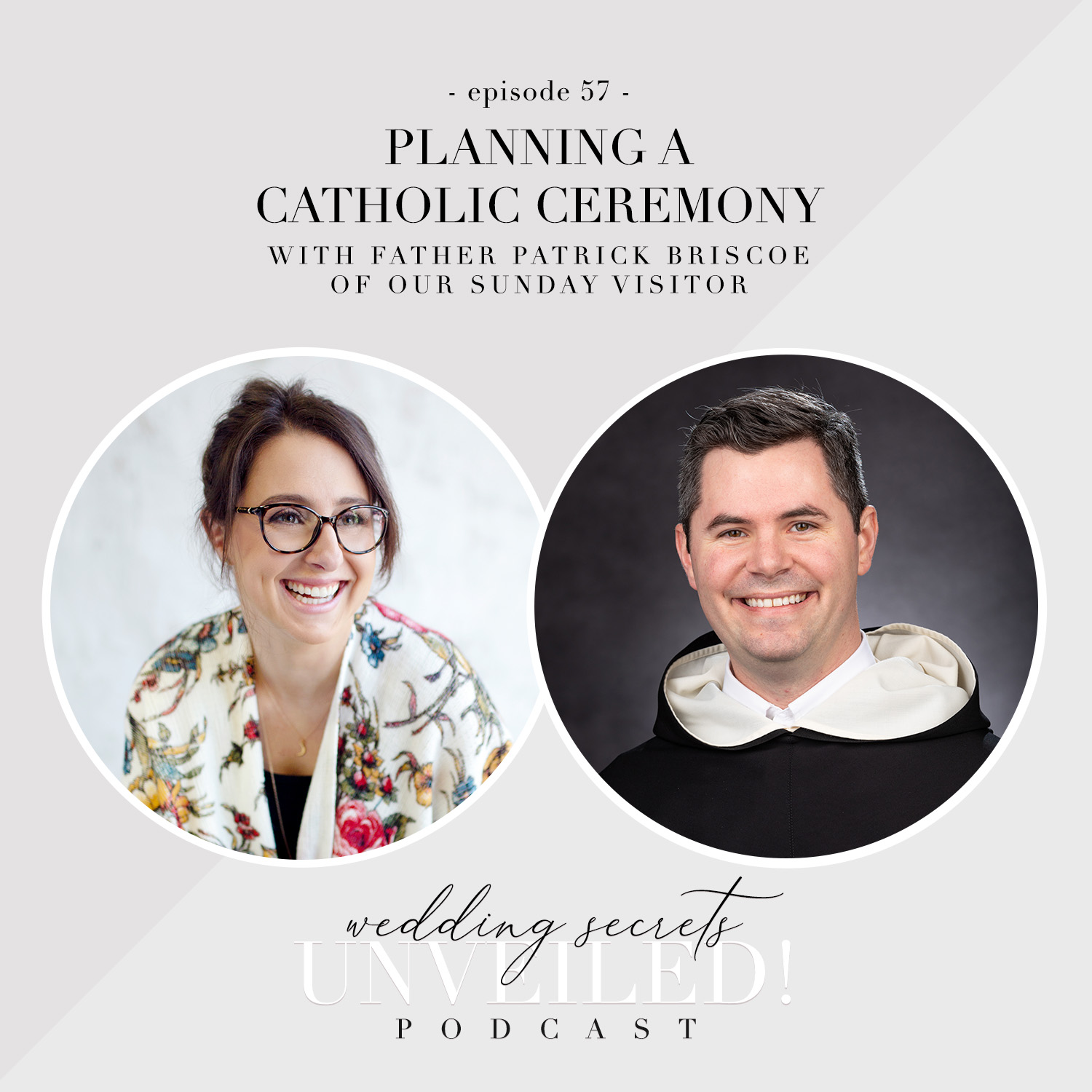
Meet Patrick.
My name is Patrick Briscoe and I’m the editor of a National Catholic newspaper called “Our Sunday Visitor”. We’ve got a website where we produce a ton of daily content and a daily newsletter. But I stepped to that ministry after a few years of ministering in Rhode Island.
My background before I got more involved in Catholic media was parish ministry. And as a parish priest and as a Catholic priest in Rhode Island, I did a lot of weddings. They were a great joy. It was a lot of fun. I met a lot of wonderful couples and every wedding was unique. I think one of the big myths about a Catholic wedding that people have right from the top is that everything is formulaic. Or, that there are no options, and that every Catholic wedding is the same. That’s not really true. The couple and the personalities of the couples will shine through every ceremony. There are some structures and some expectations that the church has for important reasons, and we’ll share some of those.
But as a priest, it has just been so beautiful to get to meet all these different couples. I get to meet people in all different walks of life, who are celebrating their weddings in the Catholic Church.
Can you tell our listeners a little bit about what brought you into the media side of things?
That’s really that’s a really interesting question. For me, I greatly enjoyed my time as a parish priest, because I’m a people person. It’s those relationships and the people that I’ve met along the way that that have always been really important. I stepped into Catholic media, because one thing that one thing that weighed heavily on my heart was all of the misconceptions about the church that that surrounded today.
There are some aspects of Catholic teaching that are difficult, and some of those come up in wedding planning. Some are tough for some Catholics and non-Catholics to hear and to handle. So, I wanted to be part of the solution and to that right to allow the Catholic decision to be clearly explained, so that people could understand where the church was coming from. I wanted to share what our understanding of the gospel is, as we approach some of these questions. So that’s kind of how I landed in the Catholic media space again, after my work at St. Pius. A lot of work with young people and young couples really informed this desire of mine to help clarify Catholic teaching, and present just a dynamic and engaging and compelling picture of Catholic life.
Let’s just dive into things! So if someone is getting engaged, or already is engaged, how does somebody know or even start to wonder or like, figure out if a Catholic ceremony is right for them?
The first question someone should be asking is, “Are you or your future spouse Catholic?” If you’re listening to this episode, you’re probably a Catholic, or maybe your partner is a Catholic. First of all, we want to say that marriage is a sacrament, which means that weddings are important for the church. It’s an obligation and duty for the church’s ministers to officiate at weddings. This is what it means to be in ministry – to help prepare couples for sacrament which they have a right to as Catholics. So, that’s the first principle that I want to say from the church’s perspective: that weddings are key and integral to life. They’re the way that a couple is going to get the grace that they need for their relationship to continue to grow.
The wedding ceremony is essential. It’s part of the brief job and a couple shouldn’t feel like a burden approaching a parish priest to begin to discuss their ceremony. Anyway, to get really to the meat of your question: where does a couple start? I think the best way is to talk to someone. And I know that can right out of the gate be an obstacle because a rectory office is going to be open from like 9am to 11:30 am on Tuesdays and Fridays. Let’s just say the communication thing can be very difficult.
Contact the priest and then know that when you speak to the priest or the deacon, they’re who can help you determine if a Catholic ceremony is right for you. You might get stuck in a bit of a loop. It’s nothing personal – it’s just the way communications are right now.
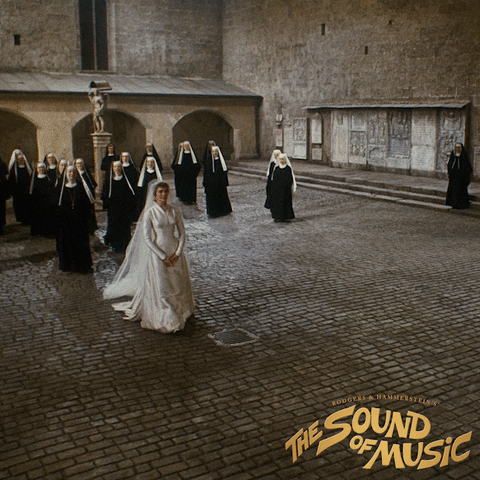
I think that is such a wonderful little tip: just because there might be a barrier in communication does not mean it’s anything personal or does not mean that the end product won’t be successful.
It can be frustrating, and I think couples should have that in mind right out of the gate. There are many websites that will help you lay out the basic questions. If you are a Catholic and you’re marrying a Catholic and you’re both getting married for the first time, you will have the easiest time possible. That is the easiest of all worlds having a Catholic ceremony. If you are a Catholic marrying a non-Catholic, it is very easy, too. Today, a Catholic can get married in the Catholic Church, to whomever they’re marrying in a Catholic ceremony.
I think that’s another historical obstacle out there. If you are, if you are a Catholic, and you are marrying someone, and it’s your second marriage, the church will require an investigation. Sometimes people have heard about this. If you’ve been divorced, you’ll have in your mind that it’s not possible to get remarried in the Catholic Church. My word to you is maybe it’s more complicated than just that.
Because in the eyes of the church, your first wedding might not have been a valid wedding. For example, if you were young, and you got married in Las Vegas, and there wasn’t a minister of the church there, then in the eyes of the Catholic Church, that wasn’t a church wedding. If you are now a grown up, and you’re having your second ceremony, and you decide that you want to have a Catholic ceremony, at that point, in the eyes of the church, that’s your first ceremony. There are extenuating circumstances like that. Again, this is why it’s really key to talk to someone before trying to adjudicate your own situation. A priest or Deacon can lead you through some of those conversations.
The last word of encouragement on that point, especially if you’re someone who’s been divorced and who is planning a second wedding again, the annulment process can seem at first very complicated. I have known many people who found in the annulment process extraordinary healing and liberating and they found closure.
That’s very interesting – what you just said about a little bit of healing that comes with the process of going through an annulment. Just out of curiosity, if you do decide that getting married in the church, or that having the Catholic ceremony is for you, is there anything that couples have to do to prepare for this?
Absolutely, yes. So again, these are not viewed by the church as obstacles to having a church wedding. They’re not checkpoints. They’re all in the service of the couple – helping the couple to move into the next phase of life. A lot of churches will have a six month to one year period of preparation. This period is implemented differently in every place, but you’ll want to find out what’s happening where you want to get married. That period will involve several meetings with a priest, or perhaps a weekend retreat.
One tool available is called the Focus Inventory. And it’s fabulous. It’s a psychological tool to help couples recognize what they have and haven’t discussed. Then, there’s another kind of technical process called the premarital inventory, which is administered by a priest. Basically, it’s a legal process on behalf of the church to declare that you have not been married before. So the priest will ask a couple of questions, to declare what their intention is, as they approach the sacrament.
That’s a very interesting process that the church sets up for their couples because it must be almost very therapeutic for couples to go through that together. It’s something that honestly every couple should be doing, whether they’re getting married in the church or not.
Yeah, absolutely. Pope Francis loves the word “accompaniment”. His vision is priests and deacons walking together with couples to help reach the goal of a happy, healthy, holy marriage. That’s the approach. So, one of the beautiful things about marriage is that it can be an opportunity for a couple to decide which community they want to belong to. But, that can be very difficult if there’s not a church you belong to.
One of the consequences I’ve seen in ministry over the years is that there’s been a lot of change. So, sometimes couples feel like there’s not a priest that they know, so who do they ask to do their wedding? What I would encourage couples to do is think about the place of their wedding, not just in the frame of a beautiful church, but where is a community they want to belong to Where is it that you want to build your life?
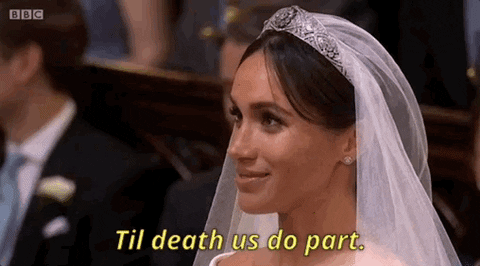
I’m so happy that you brought that up. That was actually my other question for you: what if someone doesn’t identify with a particular church or are having a destination wedding? But, it sounds like reaching out, being patient, and looking for a community you want to belong to is important.
Yeah. And you mentioned destination weddings, which is not necessarily an obstacle, from the church’s perspective – especially if the couple has another connection. For example, if you want to get married in your college town – a lot of Catholic universities have chapels available for couples for weddings. So, that might be a beautiful option for a couple.
Another thing to consider for a couple is that if you want to have a destination wedding, it is possible and totally legitimate practice for a couple to approach a priest and say, “You know what, for us, getting married in the church is important. But we’re not sure that all of our family and friends can appreciate that. So what we would like is just a simple ceremony with you before we go away for our wedding.” I’ve only done that a few times. But I wish more couples would take advantage of that option, because a Catholic wedding does not mean the blowout fest with 2000 of your closest Italian relatives.
That’s so funny you mentioned that, because that’s what my husband and I did. I think there were literally only 10 family members there. It was very important for us that we had the sacrament of marriage. But on the actual day, we didn’t do it in the Catholic Church. I’ve also seen where priests are guests at another church. I can tell it’s their priest but not their church. Can you talk to me about that aspect of planning a Catholic ceremony?
There is some flexibility there. I joked earlier about finding the most beautiful Catholic church for your ceremony and I deeply sympathize with that. Look, I wish every church were as beautiful as the Sistine Chapel. So there might be a church you visit that you think is the spot for your ceremony. It then depends on the availability and resources of the church to host a wedding. Some places will be more accommodating with that than others. And frankly, a lot of it has to do with the calendar.
The beautiful churches, as you would expect, are in high demand. They may or may not have the staff and space to accommodate requests that come to them. So, you might find that a pastor has decided the best way to handle that question is to say well, we only host weddings for parishioners. It’s not usually a big deal for priests to come in with you – we move around a lot to handle things all the time. But, there may be some administrative aspects to it handled on the backend.
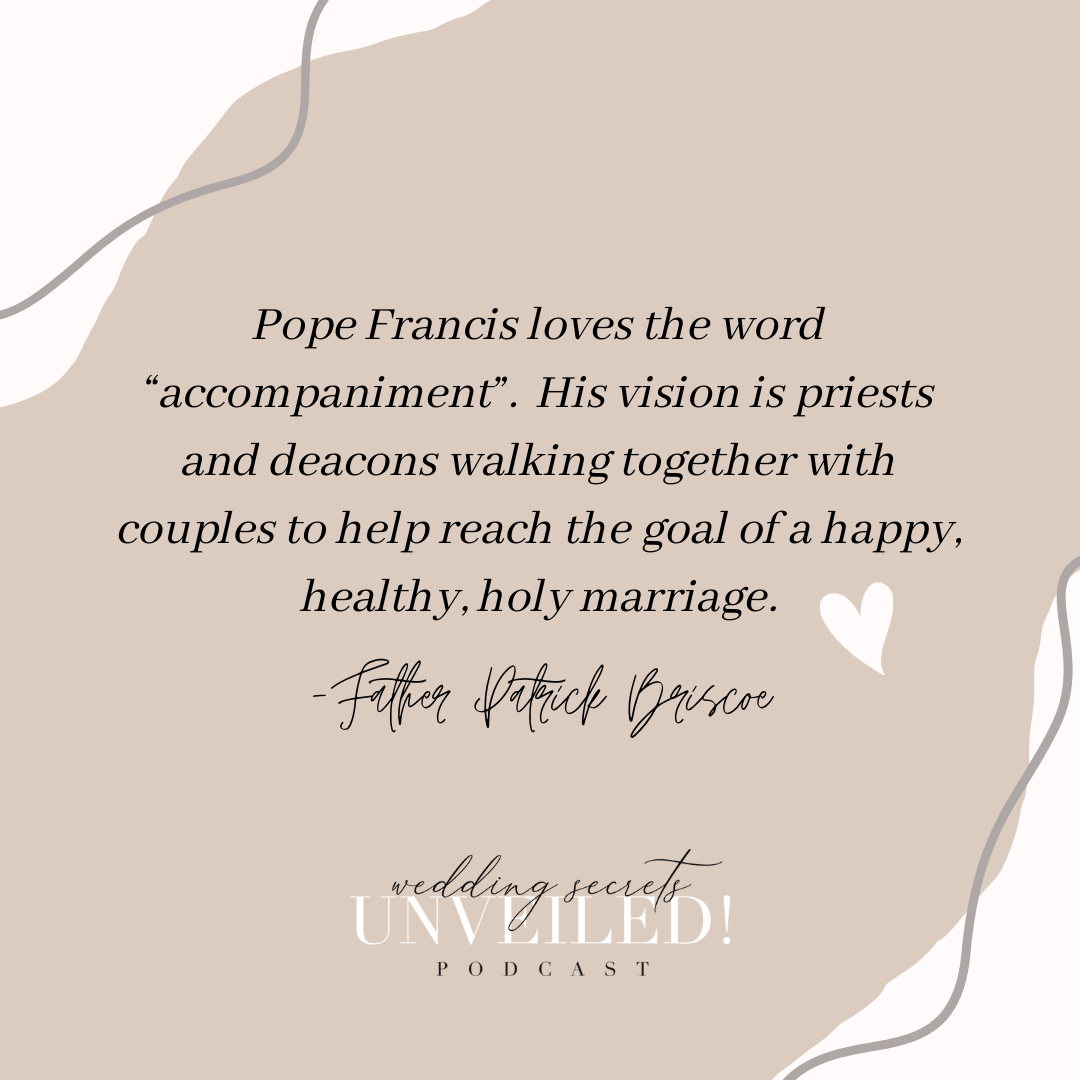
So let’s say a couple decides on a parish where they would like to have their sacrament of marriage, what are some other factors that this couple needs to now start to think about, in regards to their ceremony?
Typically, a parish priest is going to privilege the schedule of his parish. So that means that it’s not an open book for a couple approaching the church looking for a time for the weddings. There might be a vigil mass, or a scheduled hour of confessions or other regular ceremonies and events for the local community that are kind of fixed. So couples should anticipate a priest of saying a time may or may not be available. Some priests are very flexible, and they’re very open to things like Friday night weddings, or Sunday afternoon weddings, other priests are not.
One thing that can be frustrating for a couple is if they set a time with a venue, and then don’t have the availability at the church that they were expecting. That can cause a great crisis in planning. So what I would suggest is to try and get the date settled with the church first, because the church will have more limitations.
I want to throw something in here – I get couples calling me with a big gap between their ceremony and reception because of when they had to book the church. There are so many ways to fill that gap. I’ve seen people entertain their guests with little local restaurants where people can go grab a cocktail, or give people time to change into something else. It’s very common and we can help you figure out what to do with that!
So Father Patrick, let’s say a couple has decided that a Catholic ceremony is right for them. Talk to me a little bit about the actual Catholic ceremony.
Good. So the first big question that’s going to come up is: Do I have to have a mass? It always makes me laugh, but the answer is no – you don’t have to have a mass. So in the church’s eyes, there are two main rights for the sacrament of marriage. One is the exchange of vows itself. It includes readings and there’s an opportunity to have music, so it can still be fairly decorous, fairly formal, depending on the choices that the couple makes.
Or they can exchange the vows and have the marriage ceremony in the context of a whole mass. So again, I think a lot of that conversation about whether or not to have a mass depends on whether or not both partners are Catholic and whether or not the future spouses feel that their family and guests will be comfortable in a Catholic mass. And those are legitimate questions that people are deciding for their wedding day.
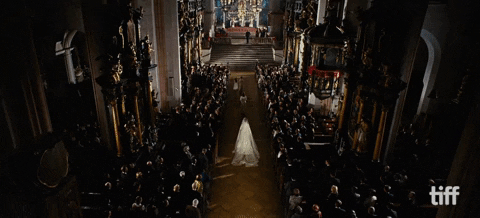
What are some other things that couples can do to make their ceremony unique? You said in the very beginning, people feel like it’s very cookie cutter, and they can’t personalize their Catholic ceremony. So, what can they do if they want to add a little more uniqueness to their ceremony?
One of the beautiful things about preparing for a wedding is taking the selection of readings seriously. So the church has a list of the selections of Scripture, which are to be read during a wedding ceremony. It’s kind of like a menu of options, right? But taking those choices seriously, reading the readings together as a couple and discussing what resonates in the Scripture with you can make a huge impact on the wedding day. This is especially true if you share those reasons why you chose the readings you chose with the priest. It’s a beautiful exercise.
Another thing that’s kind of signature for Catholic weddings is big bridal parties. But, this isn’t something you have to do. Many times people envision a big bridal party – but the Catholic wedding requires that you name two witnesses. They’re two people who will sign that so and so were validly married in the church because marriage is a public act in the eyes of the church. So you have to have witnesses. That’s it. That’s the bare minimum, you need a bride groom, two witnesses and a priest, and you’re all set for the wedding. So that can mean then that you have a lot of flexibility to determine your bridal party, and where they stand and how present or visible they are in the ceremony.
Another way to personalize it! I’ve seen so many different bridal parties during Catholic weddings. What about people wanting to involve family members? What are some ways that they can customize their ceremony and involve those that they love?
Yeah, absolutely. That’s really important for brides and grooms. It’s important for the church, because it’s an opportunity to ask for example a godparent to proclaim one of the readings, or to proclaim the prayers of the faithful. This is something else that can be customized by a couple. You can write the petitions, the kinds of prayers that are read after the vows are exchanged. So, those are a couple opportunities to involve other family members that maybe a couple doesn’t think of or see right at the beginning of the planning of their ceremony.
What about vows?
Well, we’ve got them. I think a lot of people know that the Catholic Church does not permit couples to write their own vows. So that’s not shattering anyone’s world, I think that’s pretty widely understood. The Catholic liturgy is very heavily ritualized, and that’s part of our tradition and our custom. There are, however, choices with the way and the text that the couples can say when they proclaim their vows. So couples can repeat the vows and proclaim them to each other, the priest can read them or ask them as a question. Along with those options, the vow text has two options.
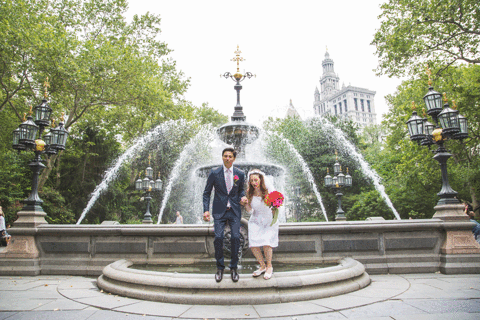
Father, Patrick, what are some other options that couples can do in their Catholic ceremony to make it unique to them?
I think another beautiful option is to make an offering of flowers to the Virgin Mary, to ask Our Lady’s intercession. So this is when you get to a wedding, right? You hear a beautiful “Ave Maria” sung and a couple goes over and they offer flowers to the Virgin Mary. I always encourage couples to do this, because so many couples have told me that that is the only moment of prayer they get in their entire day. It’s them standing by the statue – and they have one moment just to pray together. It becomes something that they can really go back to and cling to from their wedding day.
One thing we didn’t mention yet is music. That music entirely reflects a couple’s personality. Now, again, like with scripture, typically there’s a kind of menu of options. Those are important to consider from the church’s perspective. We want sacred music – nothing secular. But also some of those selections are going to be dependent on the musicians who are there.
What happens if just time gets ahead of you, and the couple or someone’s running late or the ceremony just starts late? What do we do with this?
There are a lot of things a priest can do, to oversee the tempo of the liturgy. You know, so in such a case, there are prayers, particularly in the mass that can be expedited. I think the key is to let the celebrant know what’s going on with the timing as soon as possible. Have a wedding coordinator or a bridesmaid get in touch with a celebrant and let them know they’ll be pressed for time. I mean, one of the biggest things that people aren’t really aware of is that processionals take the longest at Catholic weddings. Couples, I think you should see that that is an invitation to just kind of be open to whatever comes in the day.
That’s marriage. Not everything’s going to be planned perfectly. Talk to me a little bit about what you’re seeing now, after the ceremony. Are you finding that couples are going into receiving lines? Or what are you finding that people do as they progress out?
Yeah, that’s a great question. I wish that more couples did receiving lines, because I think it’s a beautiful way for them to greet their guests before heading to the reception. This is especially true if there’s some time between the ceremony at the church and the reception itself. I find it just a bit more formal, a bit more handsome than visiting the tables at a reception. That’s totally a personal preference. There might not be an option to do a receiving line after a ceremony because there’s another event happening in the church. So I say that, cautioning brides before they get their hearts set on that. Otherwise, typically, couples will take pictures in the church, with their celebrant, and this is an extraordinary thing. Very beautiful thing.
What do couples need to do in the eyes of the church, after their entire ceremony is over?
The extraordinary and joyful thing is to share with other couples your experience, particularly if there’s a priest or a parish or a musician, or someone that helped you to pray well, and to have a lovely experience on your wedding day to be to be bold about talking about that. Because I think now we’re to the point where more people are inclined not to get married in the church. So if you’ve had a beautiful experience, and you are ready to talk about that, it goes a long way to encouraging other Catholic couples to pursue a wedding in the church.
Wrap-Up Question
With that said, what are some key points that couples should be thinking about when planning a Catholic ceremony?
Communicate early and often with priests and parish staff. It can be frustrating for a couple to try and navigate the early stages of planning.
Know that there are options to customize a Catholic ceremony. Take those seriously as you plan your readings and scriptures.
There are beautiful ways to involve family and friends in a Catholic ceremony. Think about how you want to present and involve your loved ones in your big day.
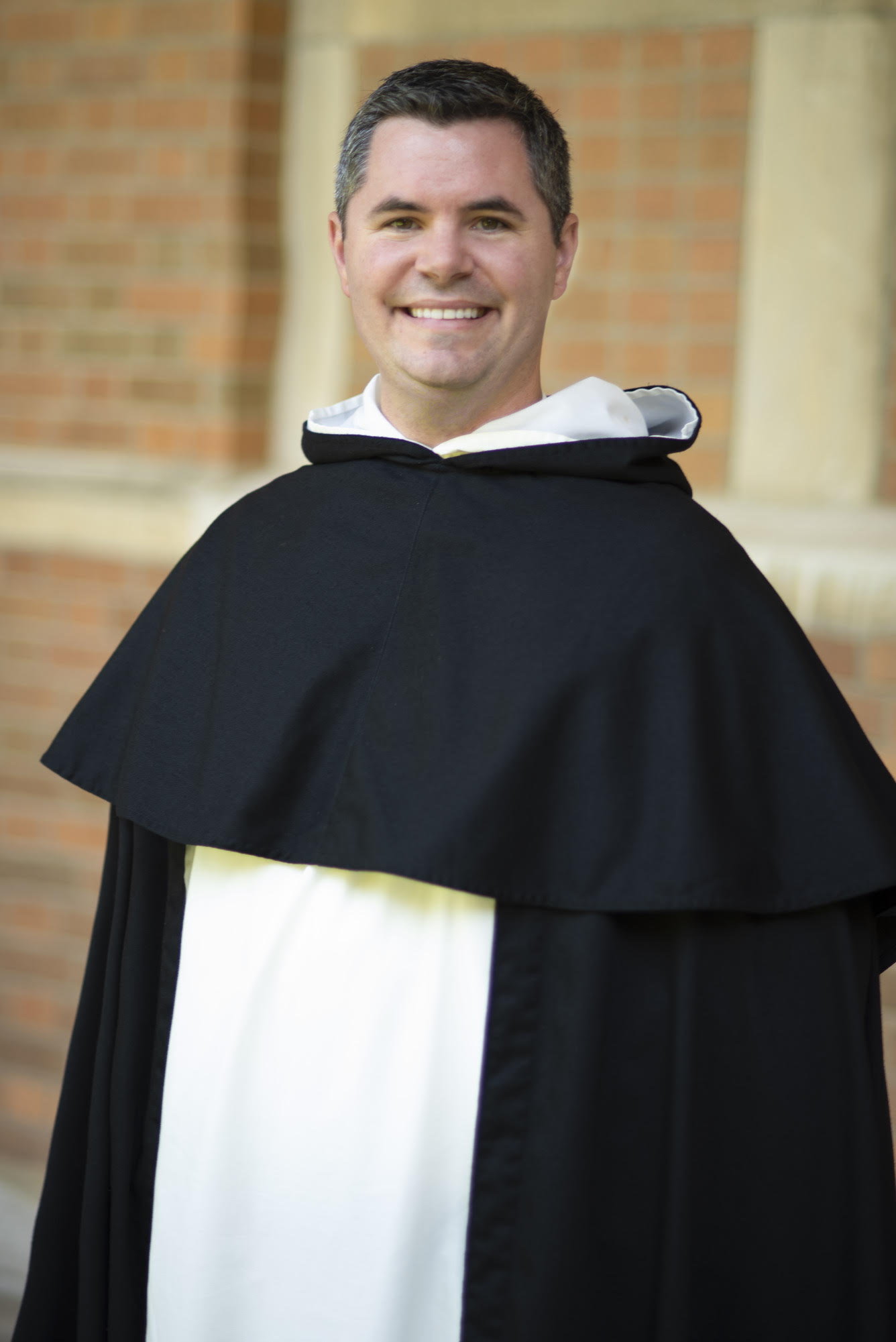
What We Discussed
Meet Patrick (1:58)
Is a Catholic Ceremony right for you? (5:43)
How to get married in a Catholic church (9:40)
Do I have to have a mass? (24:15)
Can I customize my vows? (28:35)
Wrap-Up Question (42:29)
Links Mentioned in the Episode
Find Father Patrick Briscoe: Facebook | Twitter | Instagram
Our Sunday Visitor: Website
Catholic Wedding Planner
Dominican Friar’s Podcast – God’s Splaining
You can subscribe to this podcast from wherever you’re listening so you never miss an episode. And, we would so appreciate it if you left a fabulous review for our show on Apple podcast! Even better, share it with a friend. It’s a great way to show your support and let us know what you think. Thank you so much for listening!